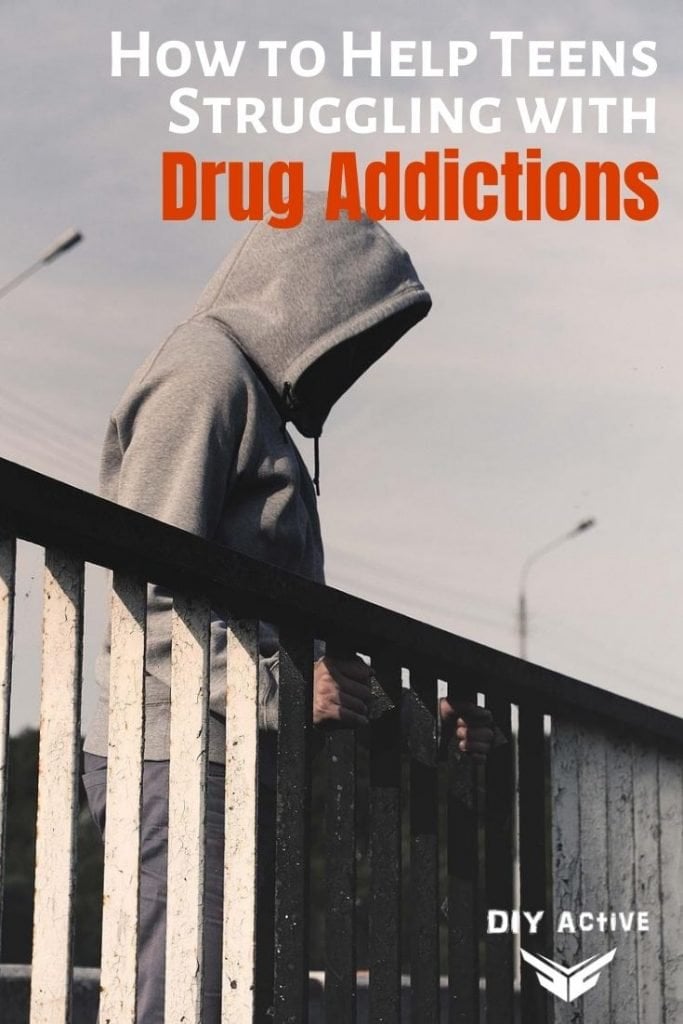How to Help Your Teen Struggling with Drug Addiction
Finding out that you have a teen struggling with drug addiction is a devastating discovery for any parent. However, before you go on the defensive and interrogate your teen about their drug use, remember that it wasn’t necessarily because of something you’ve done or failed to do.
Teen Struggling with Drug Addiction
Most of the time, teens end up becoming addicted to drugs because of peer pressure, mental illness, or stress from school or work. Some even say that becoming addicted to drugs was purely accidental.
Given this information, it’s important to understand why your teen turned to drugs as well as the risks that come with substance abuse, among other things. To help you approach the situation properly, here are a few steps that you need to take.
1. Talk to Your Teenage Child
As a parent, you need to initiate conversations about these kinds of uncomfortable topics with your teen, all while showing that you’re willing to listen and help them out. When you do so, make sure to be assertive, as you’ll likely have to deal with some opposition on their end.
No matter what, let your teen know that you’re there for them if they put in the effort to get help. For example, you can encourage them to attend therapy or work together to find drug rehab centers that can get them started on the right track.
2. Recognize the Problem
It’s normal to feel frightened and heartbroken, but keeping quiet about it won’t solve the problem. Do not make excuses for it, either. If your teen is already struggling with drug addiction, they need your help now more than ever. So the sooner you step in and be a parent, the sooner you can keep the addiction from getting worse.

That way, you and the rest of your family can be better prepared to look for the best treatment options available.
3. Address Their Behavior
Your teen will not react positively if you berate them, so never insult your teen or make them feel worse than they already do. Otherwise, you might end up exacerbating the problem.
Instead, tell them how their behavior is making you feel. If they can see things from your perspective, they may become less defensive about their behavior and become more open to getting treatment for their addiction.
4. Set Boundaries
Though it’s important to empathize with your child, do not go so far as to enable or coddle them. At the same time, do not let them take advantage of you, either. While it is true that they need your love and care, do not let them manipulate you into encouraging their addiction.
Remember that drugs can massively alter people’s thinking and behavior, causing many teens to take their loved ones’ kindness for granted.
When speaking with your teen, make it a point to express your needs, concerns, and expectations. Be firm and clear about the things that you absolutely will not do for them. Then, observe how your teen reacts to this information, and reinforce positive behaviors whenever possible.
5. Create and Reinforce Guidelines Consistently
Work with your child to set expectations that will help them understand what behaviors are acceptable and unacceptable. The more clearly and concretely you can communicate these, the easier it will be for them to follow any guidelines that you set for them.
After agreeing on these guidelines, you must be vigilant about reinforcing them, especially at the beginning. There are serious repercussions that come with drug addiction, so your teen must understand that doing the wrong thing can and will affect other people negatively.
By keeping your child accountable, you can help them understand that you’re serious about their recovery as well.
6. Let Them Know That Recovery is a Team Effort
While your child needs to recover from drug addiction, you and the rest of your family need to heal, too. Indeed, dealing with the issue to the point of burnout does nobody any good. Moreover, taking on this burden alone can be dangerous for your health.
So every once in a while, remind everyone to practice self-care. This goes for you, too.
Whenever you find yourself struggling, don’t be afraid to ask others for help. You can even join a support group so you can meet other parents who are going through the same thing.
And while checking in on your child is important, allow yourself to take a break, too.
Spend some time on your hobbies, go see your friends, and do whatever it takes to maintain your own wellbeing. Remember: taking care of yourself can help improve the quality of support that you can provide to your teen, too.
For couples that are going through addiction together, there are programs such as couples rehab to help them through their addictions.
Wrap-Up
Helping your child deal with drug addiction can be a tough balancing act for parents. Additionally, navigating your relationship with your teen, your family, and yourself can be just as challenging.
We hope that by following these tips, you can feel more empowered to support your child on their journey to recovery.